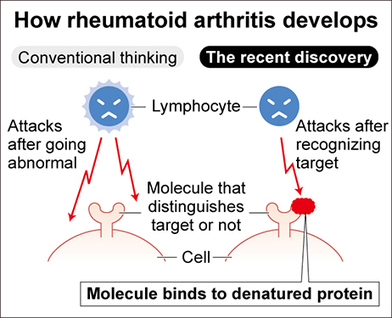Daily Mail Study: Culprit leading to rheumatoid arthritis discovered Asahi Shimbun “We can expect to develop a drug that is targeted at denatured proteins to dissolve them, or a method of examination that will allow doctors to make a diagnosis of...
Research and publish the best content.
Get Started for FREE
Sign up with Facebook Sign up with X
I don't have a Facebook or a X account
Already have an account: Login
Latest advances in immunopathology diagnosis and treatment
Curated by
Alfredo Corell
 Your new post is loading... Your new post is loading...
 Your new post is loading... Your new post is loading...
|
|














Significance
Cellular misfolded proteins are transported to the cell surface by MHC class II molecules via association with the peptide-binding groove without processing to peptides. We found that IgG heavy chain is transported to the cell surface by MHC class II molecules. Furthermore, IgG heavy chain associated with MHC class II molecules is recognized by autoantibodies in rheumatoid arthritis patients. Autoantibody binding to IgG heavy chain complexed with different MHC class II alleles was strongly associated with rheumatoid arthritis susceptibility conferred by certain MHC class II alleles. These findings suggest that misfolded proteins complexed with MHC class II molecules could be targets for autoantibodies in autoimmune diseases, which might be involved in autoimmune disease susceptibility.
Link to PNAS publication: http://www.pnas.org/content/early/2014/02/19/1401105111.short